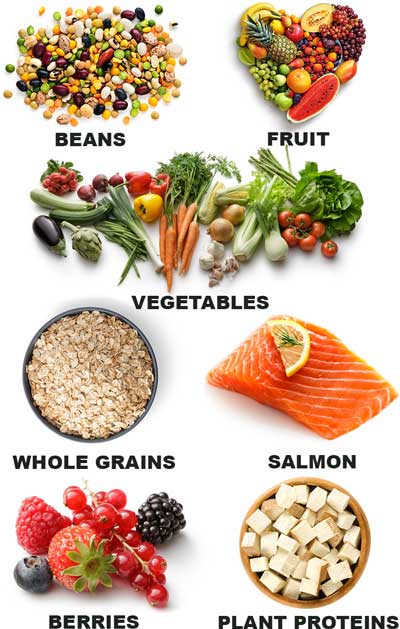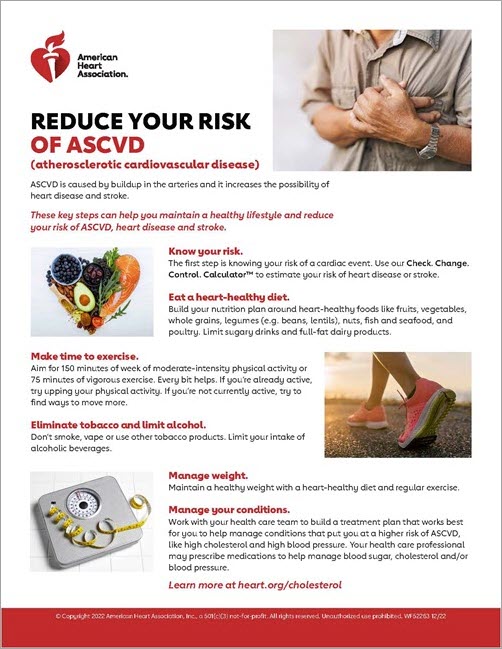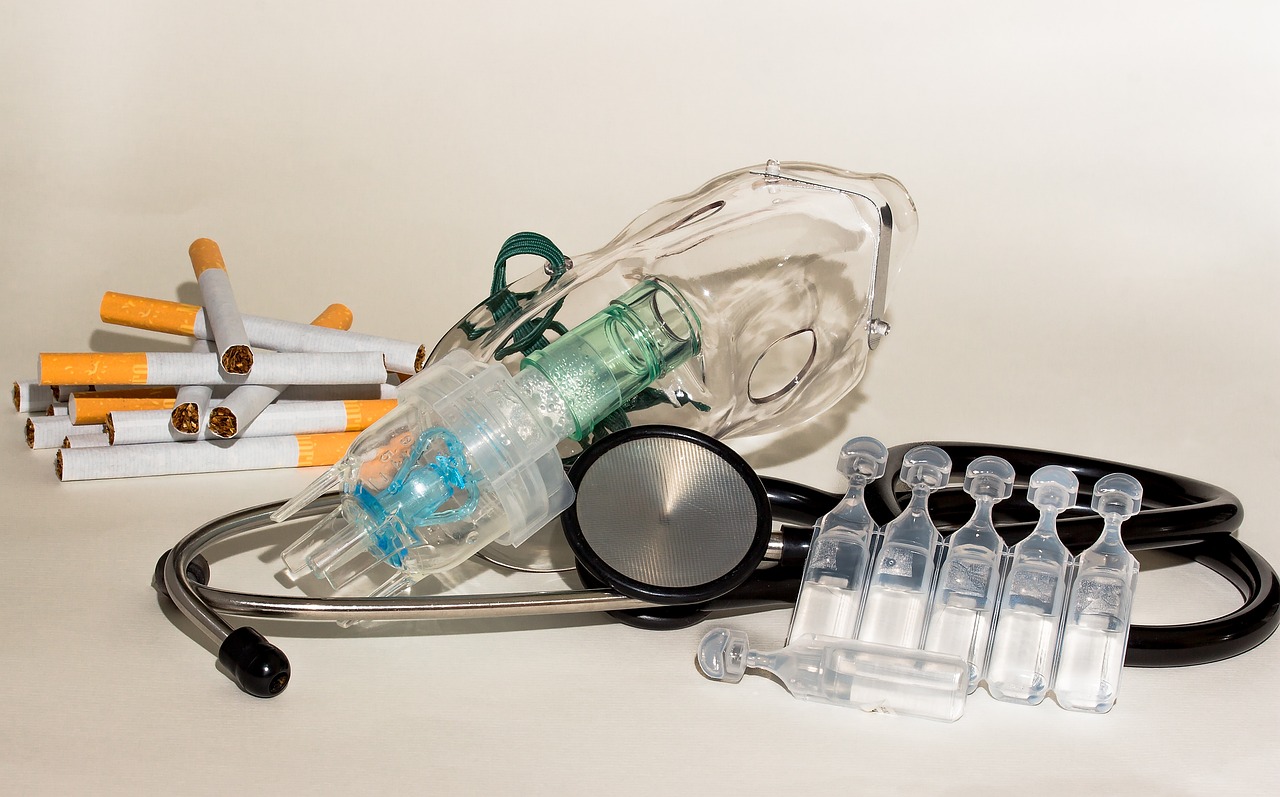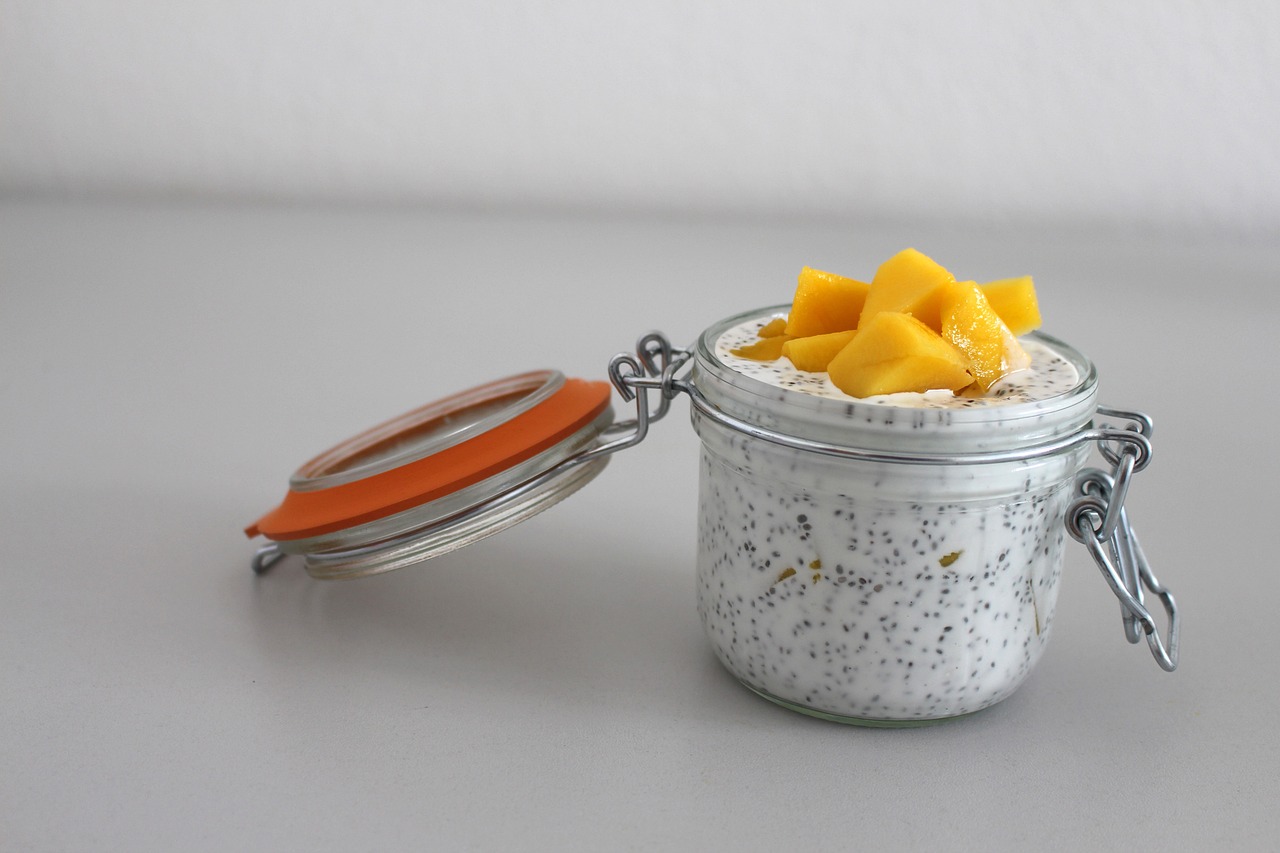Introduction
Cholesterol management is a crucial aspect of maintaining good heart health. While statin medications have proven effective in lowering cholesterol levels and reducing the risk of cardiovascular diseases, not everyone can tolerate or wishes to rely on pharmaceutical interventions. Fortunately, there are several non-pharmacological approaches to lower cholesterol. In this article, we will explore these statin alternatives and discuss how they can contribute to your overall cardiovascular well-being.
Prioritizing Heart Health: Exploring Statin Alternatives for Cholesterol Management
In the pursuit of good heart health, cholesterol management takes center stage. Statin medications have undoubtedly emerged as potent allies in this endeavor, effectively lowering cholesterol levels and reducing the risk of cardiovascular diseases. However, the reality is that not everyone can tolerate or prefers pharmaceutical interventions. The good news is that a diverse array of non-pharmacological approaches exists to help lower cholesterol and promote cardiovascular well-being. In this article, we embark on a journey through these statin alternatives, discovering how they can play a pivotal role in your quest for optimal heart health.
Dietary Modifications: Your plate can be a powerful tool in managing cholesterol. Incorporating heart-healthy foods such as oats, nuts, fatty fish, and fiber-rich fruits and vegetables into your diet can significantly lower cholesterol levels. Likewise, reducing saturated and trans fats, as well as refined sugars and carbohydrates, can be equally impactful.
Regular Exercise: Physical activity is a cornerstone of heart health. Engaging in regular exercise, whether it’s brisk walking, jogging, swimming, or cycling, can raise high-density lipoprotein (HDL) cholesterol, the “good” cholesterol, and lower low-density lipoprotein (LDL) cholesterol, the “bad” cholesterol.
Weight Management: Maintaining a healthy weight is closely linked to cholesterol control. Shedding excess pounds through a balanced diet and exercise can lead to significant improvements in your cholesterol profile.
Soluble Fiber: Foods rich in soluble fiber, like beans, lentils, and whole grains, can help lower LDL cholesterol levels. They work by binding to cholesterol and preventing its absorption into the bloodstream.
Plant Sterols and Stanols: These naturally occurring compounds, found in foods like fortified margarine and some orange juices, can help lower LDL cholesterol levels by blocking its absorption.
Lifestyle Changes: Limiting alcohol intake, quitting smoking, and managing stress are essential lifestyle adjustments that contribute to better heart health. These changes have a ripple effect, positively influencing cholesterol levels and overall cardiovascular well-being.
Supplements: Omega-3 fatty acids and red yeast rice supplements are examples of natural remedies that some people turn to for cholesterol management. However, it’s vital to consult with a healthcare provider before adding any supplements to your routine, as they may interact with other medications or have unintended side effects.
While statin medications undoubtedly play a crucial role in cholesterol management, these non-pharmacological approaches offer alternatives that can be equally effective and empowering. The key is to tailor your approach to your unique circumstances, preferences, and health goals. By adopting a holistic strategy that encompasses diet, exercise, lifestyle modifications, and, when appropriate, supplements, you can embark on a journey to lasting heart health, paving the way for a vibrant, cholesterol-conscious life.
To delve further into this matter, we encourage you to check out the additional resources provided here: HIV/AIDS – Diagnosis and treatment – Mayo Clinic
A significant contributor to high cholesterol levels is the food we consume. Making dietary adjustments can have a substantial impact on your cholesterol profile. Here are some dietary changes to consider:
A significant contributor to high cholesterol levels is the food we consume. Making dietary adjustments can have a substantial impact on your cholesterol profile. Here are some dietary changes to consider:
Reduce Saturated Fats: Saturated fats, found in red meat, full-fat dairy products, and certain oils, can raise LDL (bad) cholesterol levels. Opt for lean cuts of meat, low-fat or fat-free dairy, and replace saturated fats with healthier alternatives like olive oil or canola oil.
Increase Soluble Fiber: Foods rich in soluble fiber, such as oats, beans, lentils, fruits, and vegetables, can help lower LDL cholesterol. Aim to incorporate these foods into your daily meals to promote heart-healthy cholesterol levels.
Choose Healthier Cooking Methods: Instead of frying or deep-frying, consider grilling, baking, steaming, or sautéing with minimal oil. These methods reduce the saturated fat content in your meals.
Include Omega-3 Fatty Acids: Omega-3 fatty acids, found in fatty fish like salmon, mackerel, and trout, can boost HDL (good) cholesterol and reduce triglycerides. Aim to consume fish at least twice a week as part of a heart-healthy diet.
Snack Smart: Opt for heart-healthy snacks like almonds, walnuts, or seeds instead of sugary or processed options. Nuts and seeds are rich in unsaturated fats and can contribute to better lipid profiles.
Limit Trans Fats: Trans fats are artificial fats found in some processed and fried foods. They not only raise LDL cholesterol but also lower HDL cholesterol. Check food labels and avoid products containing trans fats.
Watch Portion Sizes: Overeating can lead to weight gain, which in turn can affect your cholesterol levels. Be mindful of portion sizes, and consider using smaller plates to help control your intake.
Stay Hydrated with Tea: Drinking tea, particularly green tea, may have a beneficial effect on cholesterol levels. Green tea contains antioxidants called catechins that can help lower LDL cholesterol.
Moderate Alcohol Consumption: If you choose to drink alcohol, do so in moderation. Small amounts of alcohol, particularly red wine, may have a positive impact on heart health. However, excessive alcohol consumption can lead to health problems, so it’s important to drink responsibly.
Stay Consistent: Consistency is key when it comes to dietary changes. Make these adjustments part of your long-term eating habits rather than short-term fixes.
Remember that dietary changes take time to show their full effect on your cholesterol levels. It’s also important to consult with a healthcare professional or a registered dietitian before making significant dietary changes, especially if you have specific health concerns or conditions related to cholesterol. They can provide personalized guidance and monitor your progress to ensure you’re on the right path to achieving a healthy cholesterol profile.
You can also read more about this here: Arteriosclerosis / atherosclerosis – Diagnosis and treatment – Mayo …

Physical activity is another effective means of managing cholesterol levels. Exercise can raise HDL cholesterol, improve overall cardiovascular fitness, and aid in weight management. Aim for at least 150 minutes of moderate-intensity exercise or 75 minutes of vigorous-intensity exercise per week, as recommended by health guidelines.
Physical activity is another effective means of managing cholesterol levels, and its benefits extend far beyond just lipid control. Regular exercise is a powerful tool for promoting overall cardiovascular health and can have a positive impact on multiple aspects of your well-being.
One of the ways exercise contributes to better cholesterol management is by increasing high-density lipoprotein (HDL) cholesterol, often referred to as the “good” cholesterol. HDL cholesterol plays a crucial role in removing excess cholesterol from the bloodstream and transporting it to the liver for elimination. By engaging in regular physical activity, you can boost your HDL levels, thereby enhancing your body’s ability to clear away harmful cholesterol.
Moreover, exercise has a broader impact on cardiovascular fitness. It strengthens your heart and improves its efficiency, helping it pump blood more effectively and reducing the strain on your arteries. This, in turn, can lead to lower levels of low-density lipoprotein (LDL) cholesterol, commonly known as the “bad” cholesterol. Lower LDL levels are associated with a reduced risk of atherosclerosis, the buildup of plaque in the arteries.
Weight management is yet another significant benefit of regular exercise. Maintaining a healthy weight is closely linked to better cholesterol profiles. Exercise helps you burn calories, shed excess pounds, and maintain a healthy body composition. This not only reduces the risk of obesity-related cholesterol issues but also enhances overall cardiovascular health.
To reap these benefits, it’s recommended to follow the guidelines set by health experts. Aim for at least 150 minutes of moderate-intensity exercise or 75 minutes of vigorous-intensity exercise per week. These goals can be achieved through various activities, such as brisk walking, jogging, cycling, swimming, or participating in sports. Mixing different types of exercises and incorporating strength training into your routine can further enhance your cardiovascular fitness and cholesterol management efforts.
Incorporating regular physical activity into your lifestyle is a proactive step towards achieving and maintaining healthy cholesterol levels while fostering a stronger and more resilient cardiovascular system. Always consult with your healthcare provider before starting a new exercise regimen, especially if you have underlying health conditions or concerns.
Looking for more insights? You’ll find them right here in our extended coverage: Prevention and Treatment of High Cholesterol (Hyperlipidemia …

Maintaining a healthy weight is crucial for cholesterol management. Shedding excess pounds, especially around the waistline, can lead to significant improvements in your cholesterol profile.
Maintaining a healthy weight is not only crucial for overall well-being but also plays a pivotal role in cholesterol management. Shedding excess pounds, especially those accumulated around the waistline, can lead to significant improvements in your cholesterol profile and reduce your risk of cardiovascular disease.
Excess weight, particularly visceral fat (fat stored around organs in the abdominal area), can contribute to elevated levels of LDL cholesterol (often referred to as “bad” cholesterol) and triglycerides while decreasing HDL cholesterol (the “good” cholesterol). This imbalance in cholesterol levels is a major risk factor for atherosclerosis, the buildup of plaque in arteries that can lead to heart attacks and strokes.
Losing weight through a combination of a calorie-controlled, balanced diet and regular physical activity can have several positive effects on your cholesterol levels:
Lowering LDL Cholesterol: Weight loss can help reduce the number of LDL particles in your bloodstream, decreasing the risk of plaque formation in your arteries.
Increasing HDL Cholesterol: Shedding excess weight is associated with an increase in HDL cholesterol, which helps transport cholesterol away from the arteries to the liver for processing and removal from the body.
Reducing Triglycerides: Weight loss often leads to a decrease in triglyceride levels, which are another type of fat in the blood that can contribute to heart disease when elevated.
Improving Insulin Sensitivity: Losing weight can enhance your body’s ability to use insulin effectively, which can also positively impact your cholesterol profile.
It’s important to note that even modest weight loss can have a significant impact on cholesterol levels and cardiovascular health. Aim for gradual, sustainable weight loss of about 1-2 pounds per week, as crash diets or extreme weight loss methods can be harmful and are typically not effective in the long term.
Remember that a holistic approach to weight management, which includes adopting a balanced and nutritious diet, increasing physical activity, managing stress, and getting adequate sleep, is essential for achieving and maintaining a healthy weight and improving your cholesterol profile. Additionally, consulting with a healthcare provider or a registered dietitian can provide personalized guidance and support on your weight management journey.
Should you desire more in-depth information, it’s available for your perusal on this page: 7 cholesterol-lowering alternatives to statins – BHF

If you smoke, quitting is one of the most impactful steps you can take for your heart health. Smoking lowers HDL cholesterol and damages blood vessels, increasing the risk of heart disease.
Taking control of your heart health starts with a powerful choice: quitting smoking. Among the multitude of lifestyle changes you can make, this decision stands as one of the most impactful. The detrimental effects of smoking on your cardiovascular system are profound and far-reaching.
When you smoke, you not only inhale harmful chemicals into your lungs but also set off a chain reaction of adverse effects on your heart. Smoking actively lowers your levels of HDL cholesterol, often referred to as the “good” cholesterol. HDL cholesterol plays a crucial role in clearing cholesterol from your blood vessels, helping to reduce the risk of plaque buildup and artery blockages. As smoking diminishes your HDL levels, it weakens this protective mechanism, leaving your heart more vulnerable to cardiovascular issues.
Furthermore, the damage caused by smoking extends to your blood vessels. The toxins in cigarette smoke contribute to the formation of plaques in your arteries, a condition known as atherosclerosis. These plaques can narrow your arteries, restricting blood flow to your heart and increasing the risk of heart disease, heart attacks, and strokes.
The good news is that your body begins to repair itself almost immediately after you quit smoking. Within days, your heart rate and blood pressure start to drop, and your circulation improves. Over time, your HDL cholesterol levels can rebound, and the risk of heart disease decreases significantly.
Quitting smoking is undoubtedly challenging, but it’s also one of the most rewarding decisions you can make for your heart health and overall well-being. Seek support from healthcare professionals, support groups, or smoking cessation programs to increase your chances of success. Every day without cigarettes brings you closer to a healthier heart and a brighter, smoke-free future.
Should you desire more in-depth information, it’s available for your perusal on this page: Interventions for enhancing medication adherence – PMC

While some studies suggest that moderate alcohol consumption may have heart benefits, excessive alcohol intake can raise triglyceride levels and lead to other health issues. If you choose to consume alcohol, do so in moderation.
The relationship between alcohol consumption and its effects on health is a nuanced and often debated topic. While some studies have suggested potential heart benefits associated with moderate alcohol consumption, it’s essential to tread carefully along this fine line, as excessive alcohol intake can lead to a host of health issues, including elevated triglyceride levels and far-reaching consequences for overall well-being.
Moderation remains the key to navigating this delicate balance. In moderation, alcohol may exhibit protective effects on heart health, potentially raising levels of high-density lipoprotein (HDL) cholesterol, often referred to as “good” cholesterol. This, in turn, could reduce the risk of heart disease to some extent. However, this beneficial impact is most prominent when alcohol is consumed in reasonable amounts.
On the flip side, excessive alcohol consumption can lead to a concerning increase in triglyceride levels, a type of fat in the bloodstream. Elevated triglyceride levels are associated with a heightened risk of cardiovascular issues, including heart attacks and strokes. Moreover, heavy drinking can lead to liver damage, addiction, mental health problems, and a cascade of negative consequences that extend far beyond heart health.
Given these potential pitfalls, it’s crucial to approach alcohol consumption with caution and mindfulness. If you choose to include alcohol in your lifestyle, do so in moderation. For most individuals, this typically means up to one drink per day for women and up to two drinks per day for men, following the guidelines from health organizations like the American Heart Association.
Moreover, it’s essential to be aware of individual tolerance levels, underlying health conditions, and potential interactions with medications. Always consult with a healthcare professional for personalized advice, especially if you have concerns about how alcohol may affect your health.
In summary, while there may be some cardiovascular benefits associated with moderate alcohol consumption, the potential risks associated with excessive intake cannot be ignored. To safeguard your health, choose moderation if you decide to consume alcohol, and prioritize your overall well-being by maintaining a balanced and healthy lifestyle. Remember that individual responses to alcohol can vary, so it’s best to consult with a healthcare provider for personalized guidance.
You can also read more about this here: Arteriosclerosis / atherosclerosis – Diagnosis and treatment – Mayo …

Chronic stress can lead to unhealthy lifestyle choices and impact your cholesterol levels. Engaging in stress-reduction techniques such as meditation, yoga, or mindfulness can help improve overall well-being.
Chronic stress is not just a mental and emotional burden; it can also have far-reaching consequences on our physical health. Prolonged exposure to stress has been linked to a range of unhealthy lifestyle choices that can adversely affect our cholesterol levels and, consequently, our cardiovascular health.
One of the most common responses to chronic stress is an unhealthy diet. Many individuals turn to comfort foods high in saturated fats, sugars, and processed carbohydrates as a way to cope with stress. These dietary choices can lead to weight gain, an increase in LDL (bad) cholesterol, and a decrease in HDL (good) cholesterol, all of which raise the risk of heart disease.
Moreover, stress can disrupt sleep patterns, leading to poor sleep quality or even insomnia. Inadequate sleep has been associated with alterations in cholesterol metabolism, making it harder for the body to regulate cholesterol levels effectively. This can result in higher LDL cholesterol levels, putting additional strain on the cardiovascular system.
The good news is that there are effective ways to mitigate the impact of chronic stress on cholesterol and overall well-being. Engaging in stress-reduction techniques such as meditation, yoga, mindfulness, and deep breathing exercises can be highly beneficial. These practices help calm the nervous system, reduce the production of stress hormones like cortisol, and promote relaxation.
By incorporating stress-reduction strategies into your daily routine, you not only manage stress more effectively but also make healthier lifestyle choices. You’ll be better equipped to resist the temptation of unhealthy comfort foods and more likely to prioritize a balanced diet rich in fruits, vegetables, and whole grains. Additionally, improved sleep quality resulting from stress reduction can positively influence cholesterol metabolism and support better cardiovascular health.
In conclusion, chronic stress is a significant factor that can lead to unhealthy lifestyle choices and negatively impact cholesterol levels. However, by adopting stress-reduction techniques, you can not only enhance your overall well-being but also reduce the risk factors associated with heart disease. Taking proactive steps to manage stress can be a pivotal part of maintaining a heart-healthy lifestyle and promoting long-term cardiovascular wellness.
If you’d like to dive deeper into this subject, there’s more to discover on this page: 2019 ACC/AHA Guideline on the Primary Prevention of …

Omega-3 fatty acids found in fatty fish like salmon, mackerel, and sardines can help reduce triglycerides and lower the risk of heart disease. Consider incorporating fish into your diet or discussing omega-3 supplements with your healthcare provider.
Omega-3 fatty acids, abundant in fatty fish such as salmon, mackerel, and sardines, are truly remarkable when it comes to promoting heart health. These essential fats have been extensively studied for their potential benefits in reducing triglyceride levels and mitigating the risk of heart disease, making them a valuable addition to your dietary choices and healthcare considerations.
The magic of omega-3s lies in their ability to act as natural allies against cardiovascular concerns. Triglycerides, a type of fat in your bloodstream, can increase the risk of heart disease when elevated. Omega-3s, however, have a knack for taming these troublesome lipids, helping to lower their levels and thereby reducing the potential threat they pose to your heart.
Incorporating fish into your diet, especially those rich in omega-3s like salmon, mackerel, and sardines, is a flavorful and nutritious way to harness these benefits. Whether you prefer grilled, baked, or poached, these fish offer a delectable path to heart health. By making fish a regular part of your meals, you not only satisfy your taste buds but also prioritize the well-being of your cardiovascular system.
For those who may not be keen on fish or have dietary restrictions, discussing omega-3 supplements with your healthcare provider can be a prudent step. Omega-3 supplements, available in various forms such as fish oil capsules or algae-derived options for vegetarians and vegans, offer a convenient way to ensure you’re meeting your body’s omega-3 needs. Your healthcare provider can offer guidance on the appropriate dosage and type of supplement that best suits your health goals.
In conclusion, the remarkable omega-3 fatty acids found in fatty fish like salmon, mackerel, and sardines offer a delicious and science-backed means of reducing triglycerides and lowering the risk of heart disease. Whether you savor the flavors of these fish in your meals or opt for supplements, incorporating omega-3s into your lifestyle is a heart-smart decision that can pave the way to a healthier, happier you.
For a comprehensive look at this subject, we invite you to read more on this dedicated page: Omega-3 Fatty Acids & the Important Role They Play

Conclusion
Statin medications have revolutionized cholesterol management and are a valuable tool in reducing the risk of heart disease. However, non-pharmacological approaches offer effective statin alternatives for individuals who prefer to manage their cholesterol levels through lifestyle changes. These approaches, which include dietary modifications, regular exercise, weight management, smoking cessation, limited alcohol intake, stress reduction, and the incorporation of heart-healthy foods, can significantly contribute to better heart health.
It’s essential to consult with your healthcare provider before making any significant changes to your lifestyle or starting new dietary supplements. They can provide personalized guidance tailored to your specific health needs and goals. By taking proactive steps toward cholesterol management, you can lower your risk of heart disease and enjoy a healthier, more vibrant life.
Looking for more insights? You’ll find them right here in our extended coverage: Interventions for enhancing medication adherence – PMC
More links
Additionally, you can find further information on this topic by visiting this page: Effectiveness of altering serum cholesterol levels without drugs – PMC
